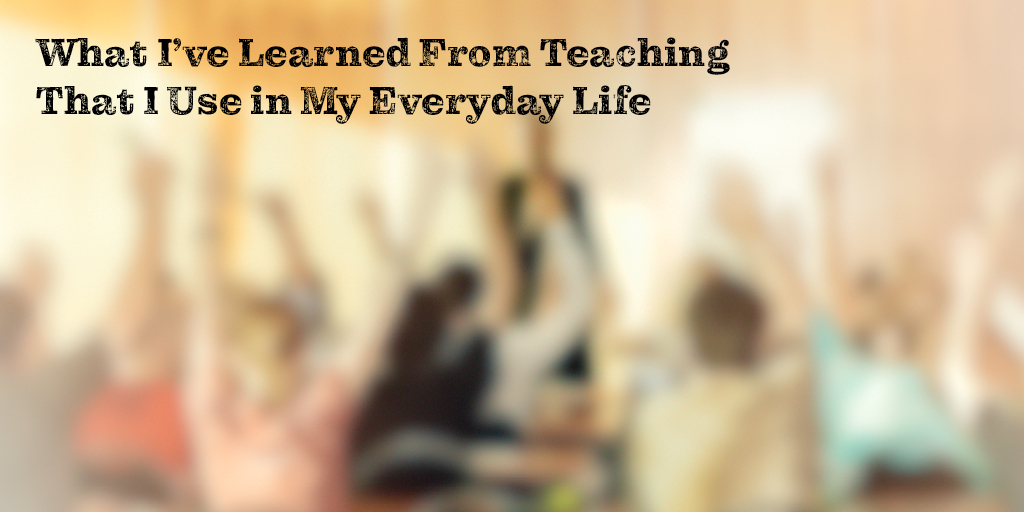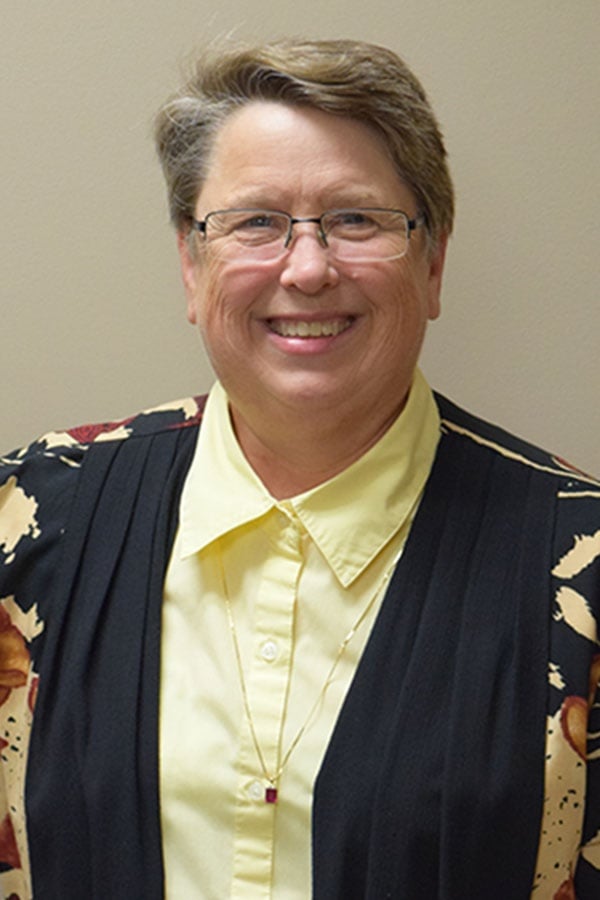
Teaching is one of the most challenging, underrated, and often deeply rewarding professions a person can choose. There is a lot you can learn from trying to teach a room full of (mostly) interested students that can help you in everyday life. Here are some of the biggest lessons I have learned over the years:
Lesson 1: All the world is a stage and you are the performer.
Yes, I know the title of my first lesson sounds a bit corny. After all, I spent many years becoming the teacher I am today, and to think of it as an act may be somewhat degrading to some. However, think about it: Humans react and reflect on what they see and experience. You have to hook the audience—be it theatergoers or a classroom of teenagers—to engage them in what you are presenting. Setting the stage in your classroom with topic-related decorations and inviting mechanisms to encourage questions go a long way in presenting yourself as a passionate teacher willing to go the extra mile so that your students will learn.
For example, instead of simply writing a bell work question on the board for the students to copy, engage them. Wrap two or three relevant questions for the week in colorful paper and select a student to unwrap a question each day, look inside, and present the bell work question to the class. Students could also be challenged to write their own questions and wrap them up to be opened later. I have learned that if I am teaching a class that no one would want to buy a ticket to, then I need to rethink my presentation skills so it will engage the students immediately. In my real life, setting the stage is needed for all social encounters—you want to project yourself in a positive manner with each encounter.
Also, all performers wear costumes on stage. For teachers, your costume is dressing professionally—no jeans and T-shirts unless it is a school dress down day or spirit day. The clothes you wear, how tall you stand, and how you project your body language (called presentation skills in theater) on your stage (aka the classroom) make an enormous difference in how students perceive and pay attention to you. How does this help me in my daily life? Well, setting the stage in any social encounter is important. Remember that first impressions last.
Lesson 2: Don’t assume a student understands what you have said or didn’t say.
To start, I needed to grasp the concept that students not understanding my lesson instructions was really my problem, not theirs. Perhaps I took too many things for granted, like how to properly structure a complete sentence for clarity to answer the questions presented, how to make the correct type of graph, or what the words larger than two syllable mean—especially ones not commonly used in social language, like mitosis, sustainable, and anthropogenic. I try to look at things from the audience's perspective rather than mine. And even when I think I've communicated something clearly, I always follow up to make sure I actually did. In the real world, proper communication eliminates misunderstandings and conflict during social engagements and family activities.
Lesson 3: Make a plan, even if you have a few detours along the way.
Our high school was named for Dwight Eisenhower. One of his favorite quotes was, “In preparing for battle I have always found that plans are useless, but planning is indispensable.” Your day might not go as planned, but the planning at least gives you a framework from which to build and a focus for what needs to be covered in a sequential manner. Creating detailed lesson plans also provides a great way to access your effectiveness. Planning in real life can be a simple as planning your errand route to use less gas and reduce your carbon footprint to planning for long-term financial portfolios in preparation for retirement.
Lesson 4: Go with the flow.
In the immortal words of Queen Elsa, “Let it go.” No matter how well we plan our classroom lessons, life happens. I have learned to take advantage of those teachable moments as well as the energy, creativity, and viewpoints of my students as new ways to look at what is being presented. As a result, it has made me a better teacher by meeting the needs of my students and not always just the requirements for state standards.
In my real life, going with flow has become my new mantra. Change what you can, learn from the past, and grow into the future.
Want to connect with other teachers online? Check out our interactive educator community, MimioConnect™!





